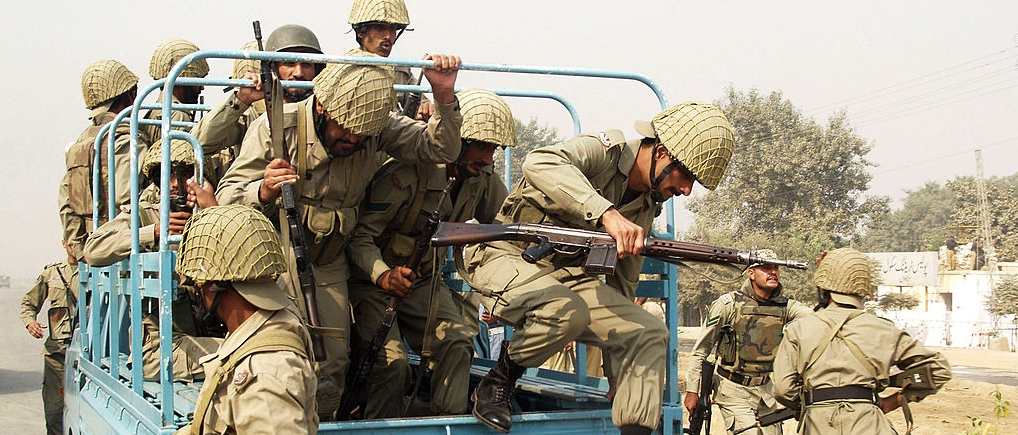
Voices this Week draws together published material on an important strategic issue in South Asia. This week: recent articles addressing militancy and terrorism in South Asia.
In the wake of the June 8 attacks on Karachi airport, Irfan Husain and Ejaz Haider both call for improved approaches to counter-terrorism. Haider notes: “This war is not about to end. We need to begin to train other forces with the same dedication that the Army puts into training its personnel.”
Najmuddin A Shaikh condemns the media coverage of the attack on the Karachi airport, that he argues “called into question the professionalism of the journalists and equally of the editors.” He refers to the “almost hysterical note to the comments on the revelations that the arms the terrorists carried were of Indian and Russian origin,” when the fact is that “in Karachi, one of the most heavily weaponised cities in the world, you can get guns and ammunition originating in any part of the world.” He continues:
“Similarly much was made… of the revelation that the terrorists were carrying blood clotting drugs, which were of Indian origin…. Some channels showed the labels, which clearly stated that this medicine was being imported and marketed by a Pakistani company and presumably was available to anybody who wished to buy it from a local pharmacy but this was not highlighted in any of the comments…. We need now to focus on the issues and not on the ‘foreign hand.’”
Praveen Swami contends that Narendra Modi may have to answer the question of what India “ought to do when the next 26/11 happens” sooner than most expect. Swami presents Modi’s “five hard options” of how to respond: 1. “to keeping doing nothing,” 2. “coercion,” perhaps in the form of mobilizing troops, 3. “to do what Dr. Singh couldn’t: limited strikes on jihadist training camps across the LoC, using air power or missiles,” 4. to “tell Indian troops to target the Pakistan Army along the LoC, using artillery and infantry — a task aided by the fact that its defences along stretches of the Neelam valley have been degraded by troops having to be moved to fight the Tehreek-e-Taliban elsewhere,” and 5. to “authorise the use of covert means, like bomb-for-bomb strikes or targeted assassination of jihadist leaders. Mr. Modi’s intelligence services, though, don’t have this arrow in their quiver — and it will be a while, most experts say, before they can acquire it.”
“Every sane person should hope Mr. Modi will never be required to exercise any of his military options — but thinking through war is just as important as talking peace…. Now that the roseate glow of his inaugural has subsided, Mr. Modi needs to listen to his advisers, and think through the prospects — and costs — of war. The future of a subcontinent will depend on the choices he makes.”
***
Image: Arif Ali-AFP, Getty